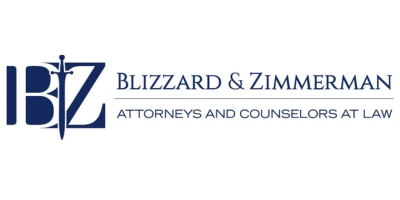
The federal 2255 petition may be filed by a person who is in federal custody to challenge their federal criminal conviction and/or sentence.
HOW IS A FEDERAL 2266 PETITION USED?
The federal 2255 petition may be filed by a person who is in federal custody to challenge their federal criminal conviction and/or sentence.
It may be used to raise claims that your loved one’s sentence or conviction was unauthorized under any law of the United States.
Post-Conviction Lawyer Jacob Blizzard is recognized by the State Bar of Texas Board of Legal Specialization as a criminal appeal and criminal law specialist. Jacob is also Capital Murder Appellate List Qualified, Texas 7th Judicial Region.
Jacob’s practice in US federal court includes:
- Direct appeals following a conviction, petition for discretionary review to the Texas Court of Criminal Appeals.
- Post-conviction writs of habeas corpus under Texas Code of Criminal Procedure 11.07.
- Arguing cases in oral argument before the Texas Court of Appeals.
Jacob has extensive appeal, criminal defense, and appellate court experience in the Texas state and United States federal courts.
Contact the law offices of Blizzard and Zimmerman Attorneys to schedule a review of your federal case and potential appeal today.
Online Resources To Learn More About The 2255
Jacob has created a series of videos to help understand the Federal 2255 process and these may be viewed on our YouTube Channel – Freedom from Federal Prison at https://www.youtube.com/@winningfreedomfederalprison.
There is also a private online Facebook community for those with loved one’s in prison to learn more about the 2255 petition at https://www.facebook.com/groups/winningfreedomfromfederalprison where loved one’s can share, discuss, support each other in their efforts to seek their loved ones freedom from federal prison.
Risk-Free Screening Available
We have also established a no-risk screening for loved one’s of those imprisoned in federal prison to help determine if they quality for 2255 relief or other relief. Contact us today to learn more about this consultation.
28 U.S. Code § 2255 – Federal Custody; Remedies on Motion Attacking Sentence
28 U.S. Code § 2255 is a federal statute that provides a mechanism for individuals in federal custody to challenge their sentences. It allows a prisoner to request that the sentencing court vacate, set aside, or correct a sentence if it is determined that the sentence was imposed in violation of the Constitution or federal law, the court lacked jurisdiction to impose the sentence, the sentence exceeded the maximum authorized by law, or is otherwise subject to collateral attack.
Key Provisions
Filing a Motion:
A prisoner must file a motion with the court that imposed the sentence, outlining the grounds for challenging the legality of the sentence. This motion must be made within one year from the date the judgment of conviction becomes final unless specific exceptions apply.
Grounds for Relief:
The statute allows for relief if:
- The sentence was imposed in violation of the Constitution or laws of the United States.
- The court lacked jurisdiction to impose the sentence.
- The sentence exceeded the maximum penalty allowed by law.
- The sentence is otherwise subject to collateral attack.
Court’s Response:
The court must promptly review the motion and may dismiss it if it is determined to be without merit. If the motion is not dismissed, the court is required to hold a hearing to determine the validity of the claims.
Outcome:
If the court finds that any of the grounds for relief are valid, it may vacate the judgment, resentence the prisoner, grant a new trial, or correct the sentence as appropriate.
Appeals:
The decision on the § 2255 motion can be appealed to a higher court, providing another layer of review.
(June 25, 1948, ch. 646, 62 Stat. 967; May 24, 1949, ch. 139, § 114, 63 Stat. 105; Pub. L. 104–132, title I, § 105, Apr. 24, 1996, 110 Stat. 1220; Pub. L. 110–177, title V, § 511, Jan. 7, 2008, 121 Stat. 2545.)
Importance of 28 U.S. Code § 2255
This statute is crucial for ensuring that individuals have a post-conviction remedy to address violations of their rights that occurred during the sentencing process. It helps maintain the integrity of the judicial system by allowing for the correction of errors that have substantial effects on a person’s liberty.
Read the full text of 28 U.S. Code § 2255 here
Blizzard and Zimmerman Attorneys work hard to protect the rights of all of our clients nationwide acting as your advocate throughout the federal criminal process.
We urge you to speak with us as soon as possible so you may get the experienced legal advice you need.
Put our team of federal criminal appeal attorneys to work for you. We can provide you with the sentencing, prison, or appeal help you need, contact us today.

